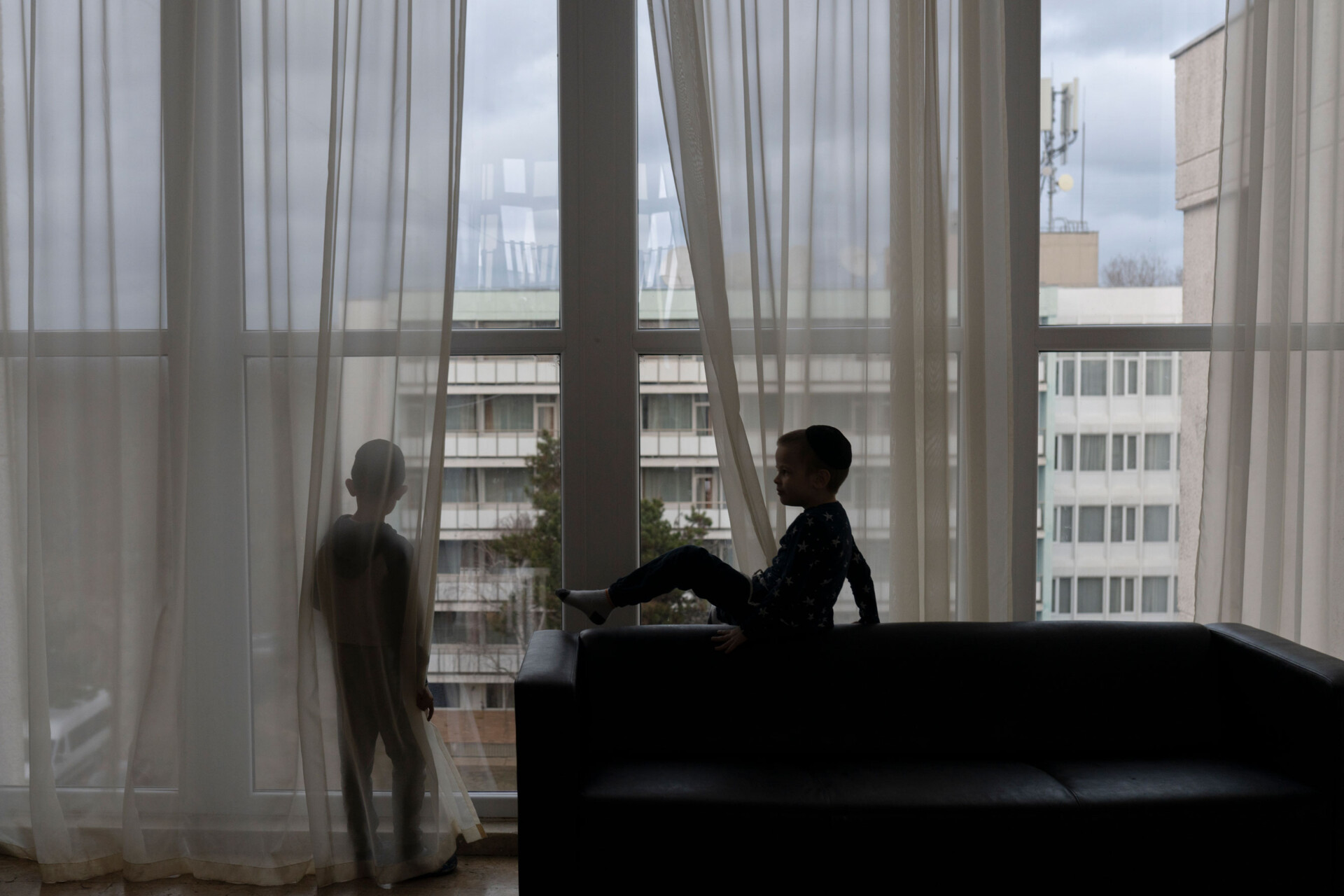Listen to this story
At first, Rakhel Viner’s new life in Romania felt like a vacation. She was suddenly relieved of needing to cook for her husband and four children and managing the housework of their apartment in Odesa, an opulent port city on Ukraine’s coast. If the kids wanted playmates, all they had to do was step out of their hotel room and head to the lobby. Though Ukraine was nearby, they were far from the destruction, the whining air raid sirens, the explosions. But a year into their stay at the Romanian resort town of Neptun on the Black Sea, “we are confronted with this immense unknown,” Viner lamented to me one afternoon in late January. It had just started to snow lightly, and a thin coating of ice formed on the outdoor pool. “And you reach a point where you accept this, you actually learn to put up with uncertainty.”
Viner, who serves the community as a child psychologist, is smartly dressed, with pearl earrings and a black headband stretching across her shoulder-length wig that, as a married ultra-Orthodox Jewish woman, she is expected to wear. The 39-year-old is part of a 1,000-strong community of Ukrainian Jews who fled, en masse, at the start of Russia’s full-scale invasion of their country, ensconcing themselves in a hotel complex on the southern tip of Romania’s shore, which they rapidly transformed, creating a synagogue, installing a Ukrainian-accredited school and setting up a full kosher kitchen. Like many of the 8 million Ukrainian refugees who have scattered across much of Europe and other parts of the world since the invasion — the largest refugee crisis since World War II, a dismal record previously held by Syrians — they stuffed their possessions into wheeled suitcases and parted ways with relatives. They also brought with them their culture: Odesa’s historic Jewish community is often synonymous with the city itself. Create a free account to continue reading Already a New Lines member? Log in here Create an account to access exclusive content.



